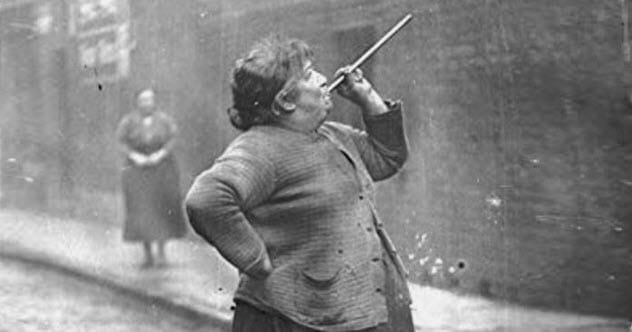“Learn to code,” is a common refrain to those facing industry decline. Yet, the relentless march of progress often leaves behind professions that once thrived, from coal miners to journalists. While we adapt to new skills, it’s easy to forget the jobs that once provided livelihoods for entire generations. Here are ten fascinating jobs that have disappeared, crushed beneath the boots of human advancement.
Knocker Uppers
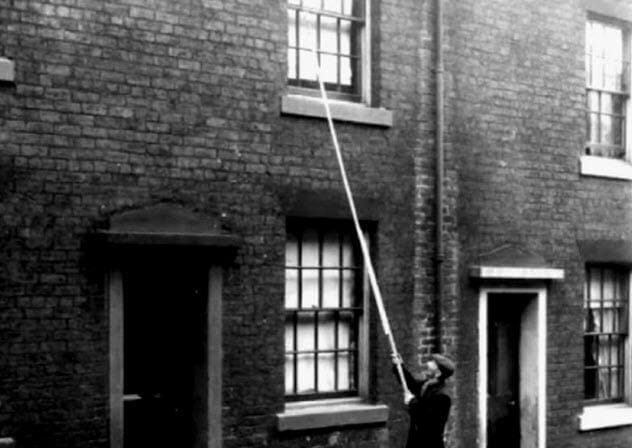
Before the ubiquity of alarm clocks, industrial England relied on “knocker uppers.” Factories and mines needed workers on the line by 6:00 AM, but humans love to sleep. To combat tardiness, companies employed people to rouse their workers. These knocker uppers walked through residential streets wielding long sticks or pea shooters, tapping on bedroom windows to wake people up on time. A truly jarring wake-up call!
Rower Women
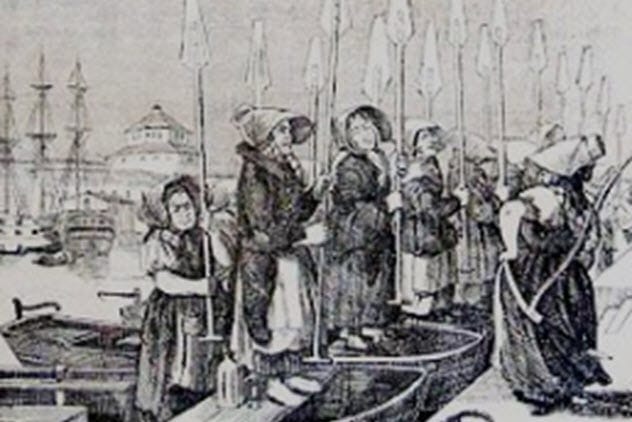
For centuries, traversing waterways has been a challenge. Until World War I, Swedes ingeniously used female-only water taxis to navigate the Stockholm archipelago. These “rower women” used long-oar-propelled boats to transport people across the water. The Steam Age brought innovations that led to the decline of this traditional role. Venezuelan General Francisco de Miranda praised them in 1787, calling them “[They were] good women who row like devils!”
Human Computers

Before digital computers, human computers performed complex calculations. NASA relied on these skilled individuals—often women—to process and analyze vast amounts of data. Today, we are heavily reliant on modern technology, but there was a time when human minds were the primary engines of computation. It’s a powerful reminder of human capability and intellect.
Priest Hunters
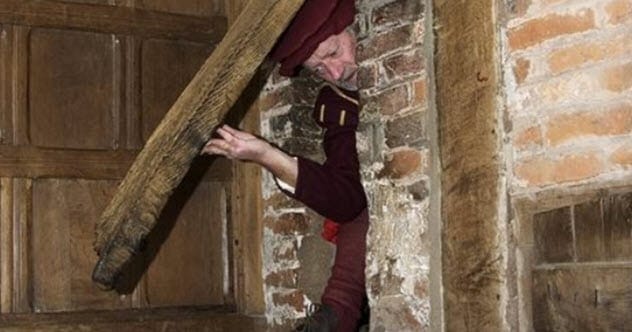
During the reign of Queen Elizabeth I, priest hunters sought to capture Catholic priests, who were often seen as a threat. This led to the creation of “priest holes”—secret hiding places within homes where priests could evade capture. These hunters created a dangerous environment, and priests faced imprisonment, torture, and death if discovered. It was a dark time defined by religious persecution.
Whipping Boys

Royal children, especially heirs to the throne, were often spared corporal punishment. To remedy this inequity, “whipping boys” were employed to take the beatings that the prince deserved. When the young royal misbehaved, the whipping boy would receive the physical punishment in his stead. Whether this role was a “real” job is debated, but the concept is undeniably intriguing.
Sandal-Bearers

In ancient Egypt and feudal Japan, sandal-bearers carried the sandals of their superiors, sometimes even washing their feet. In feudal Japan, some sandal-bearers rose to higher status from this humble position. Toyotomi Hideyoshi, who became Imperial Regent of Japan, began his career as a sandal-bearer. Their exact status in society remains a topic of speculation, but it’s clear that this occupation held significance.
Printer’s Devils
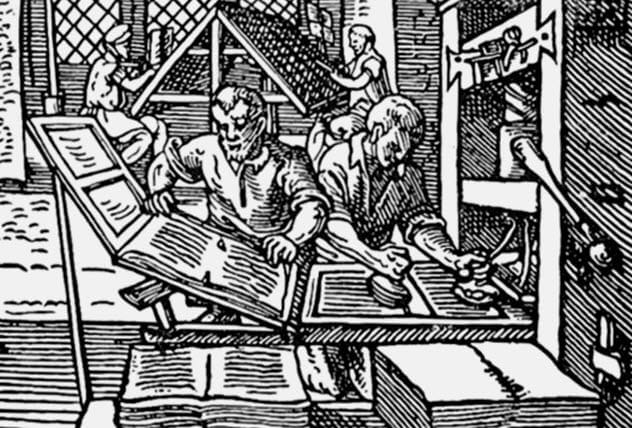
Before the digital age, young boys apprenticed in printing shops as “printer’s devils.” These apprentices completed menial tasks while observing their master’s work to learn the craft. Figures like Walt Whitman and Mark Twain started their careers as printer’s devils. The decline of traditional printing and the apprentice model led to the disappearance of this once-common childhood occupation. It’s hard to deny that “printer’s devil” is an undeniably cool job title.
Herb Strewers
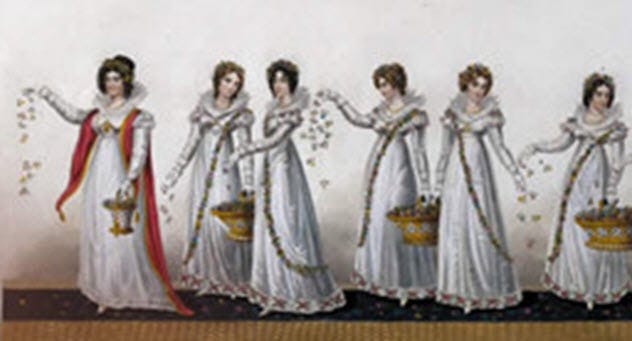
In malodorous medieval London, royal residences often smelled of open sewers and animal dung. To combat these unpleasant odors, royal households employed “herb strewers.” These women scattered herbs and sweet-smelling petals throughout the palace. Herb strewers also played a prominent role in coronation ceremonies, leading processions by spreading fragrant herbs before the king or queen. Anne Fellowes was the last to hold this position.
Mursmackas
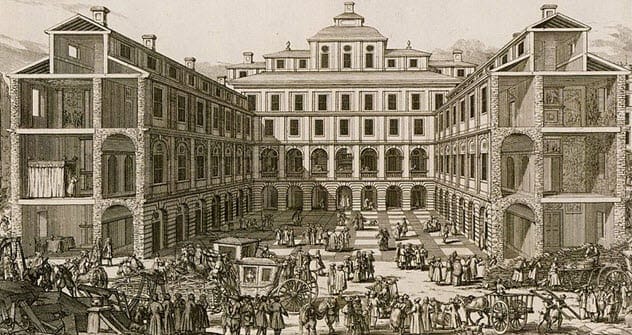
In Sweden, during the late 18th to early 20th centuries, “mursmackas” were unmarried mothers who carried heavy pallets or buckets of mortar for bricklayers. As Stockholm and Gothenburg rapidly grew, these women faced difficult labor conditions. With social changes and increased opportunities for women, this job eventually disappeared with women finding better avenues of employment.
Link-Boys
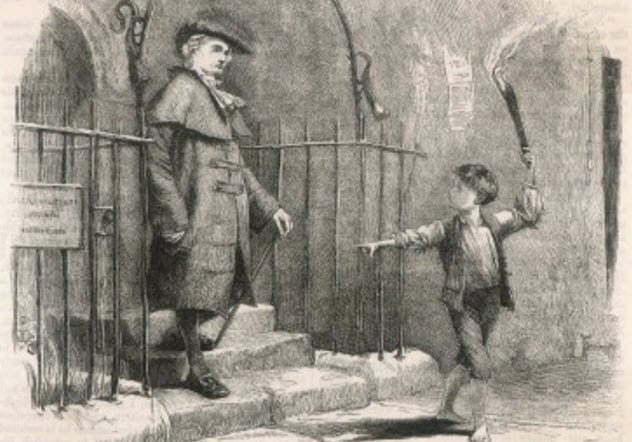
Victorian London’s dark streets were treacherous at night. “Link-boys” guided patrons with flaming torches or candles, leading the way through the darkness for a fee. However, some link-boys colluded with thieves, leading unsuspecting customers down dark alleys to be robbed. With the advent of streetlights, the need for link-boys vanished, illuminating a safer path for Londoners. It’s from this job that we get the saying “can’t hold a candle to.”
From waking up factory workers to carrying royalty’s sandals, these vanished vocations reflect the evolving nature of work and society. Technological advancements, social progress, and economic shifts have reshaped the job market, leaving behind peculiar and fascinating occupations. Next time you hear someone say “learn to code,” remember the knocker uppers, rower women, and countless other jobs that have faded into history.
Which of these jobs surprised you the most? Share your thoughts in the comments below!


